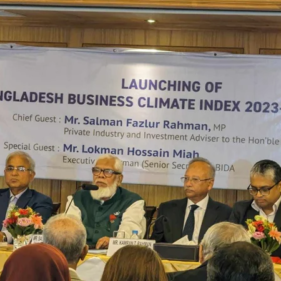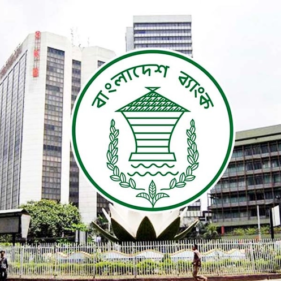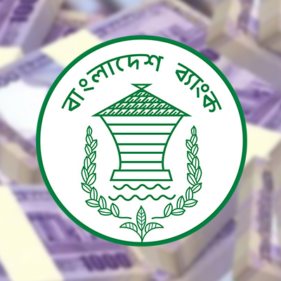Bangladesh remains to be lagging behind opponents within the manufacturing of recycled yarn though the marketplace for such yarn is swelling, particularly in tune with new environmental legal guidelines being formulated by the European Union (EU).
Recycled yarn is manufactured from worn-out or scrap textiles, furnishings and clothes or different supplies like plastic bottles.
Although a lot of the recycling processes are patented, the fundamental idea entails creating pulp or fibres and turning these into yarn. Typically virgin cotton can also be added to the combo.
Use of attire created from recycled yarn has been rising globally as customers’ behaviour is altering centring the necessity for safeguarding the setting and slowing down local weather change.
This has been additional propagated by quick vogue — the cheap clothes produced quickly by mass-market retailers in response to the most recent tendencies — which inevitably results in substantial carbon emissions and consumption of water.
Prompted by shopper behaviour, the EU has already moved in the direction of formulating a brand new due diligence regulation for the sourcing of clothes created from recycled yarn.
The commerce bloc has already introduced that by 2030, all of its garment gadgets must be sourced from recycled yarn.
As part of the brand new guidelines, Swedish retail large H&M has a goal to have 24 p.c of its attire sourced from recycled or sustainable supplies by 2025.
Globally, annual gross sales of recycled yarn are projected to develop from $4,553.4 million in 2023 to $5,500.7 million by 2029 at a compound annual development price of three.2 p.c, in keeping with QY, a California-based international analysis organisation.
China accounts for about 60 p.c of the commerce adopted by the US with a share of about 16 p.c, it mentioned.
At the moment, there are solely three native mills in Bangladesh manufacturing recycled yarn for export. Arrange with an funding of round $30 million, they will produce practically 40 tonnes of recycled yarn per day.
One other 60 tonnes of recycled yarn are produced by some mills however these are used for merchandise meant for the home market, equivalent to mattresses and curtains, in keeping with trade insiders.
There are additionally some mills producing fibres for export.
Whereas cotton yarn can price $3 to $3.5 per kilogramme within the worldwide market, recycled yarn can fetch as a lot as $1.5 to $2.5.
4 extra initiatives are below building with an funding of $40 million and are set to come back into manufacturing inside the subsequent one yr. They’re anticipated to take the each day output of exportable recycled yarn to 100 tonnes, they mentioned.
Establishing a full-fledged manufacturing facility requires an funding of round $10 million. This together with a scarcity of technological knowhow and expert manpower are main elements behind funding coming about at a really sluggish tempo, they added.
This additionally prompts home textile mills to primarily give attention to cotton yarn.
“I’ve been producing a little or no quantity of virgin cotton-mixed recycled yarn for the requirement in my garment factories,” mentioned AK Azad, chairman and chief government officer of Ha-Meem Group, a number one garment exporter.
A devoted recycled yarn mill of the group at Maona in Gazipur will go into manufacturing inside the subsequent six months to provide 40 tonnes of denim yarn per day, Azad advised The My Information over the cellphone.
At the moment, many mills are producing yarn from recycled supplies, mentioned Md Zahurul Islam, managing director of Bhaluka-based recycled yarn producing mill Saraz Fibre-Tech Ltd.
Nevertheless, their composition is combined, equivalent to, 30 p.c virgin cotton and 70 p.c wastage of garment, which is regionally often known as “jhoot”.
The worth addition within the manufacture of recycled yarn can attain virtually “300 p.c” as in any other case the supplies would have ended up in landfills, Islam mentioned.
Yearly, Bangladesh produces 4 lakh tonnes of textile wastage, of which 5 p.c is regionally recycled.
A serious portion of the remaining wastage is exported or become fibre and some tonnes find yourself in landfills.
If 30 p.c of the waste might be recycled, it may save on the import of $1 billion of virgin cotton, in keeping with native millers.
Not too long ago the costs of yarn created from recycled supplies declined due to a fall in demand from worldwide retailers and types amid the Russia-Ukraine warfare, mentioned Md Abdur Rouf, government director of Bhaluka-based Simco Spinning and Textile Ltd.
A 7.5 p.c VAT on procurement and 15 p.c VAT on sale of such yarn has been hindering funding on this sector, mentioned Mohammad Ali Khokon, president of Bangladesh Textile Mills Affiliation.
The federal government ought to formulate coverage on this regard quickly, he added.
The Bangladesh Garment Producers and Exporters Affiliation (BGMEA) has already began partaking in collaborations with analysis groups of various EU nations to develop recycled yarn, mentioned BGMEA President Faruque Hassan.
Future enterprise will depend upon one of these yarn and by 2030, Bangladesh will hopefully be a hub for recycled yarn, he added.

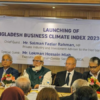

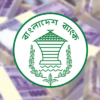

 For all latest news, follow The My News’s Google News channel.
For all latest news, follow The My News’s Google News channel. 